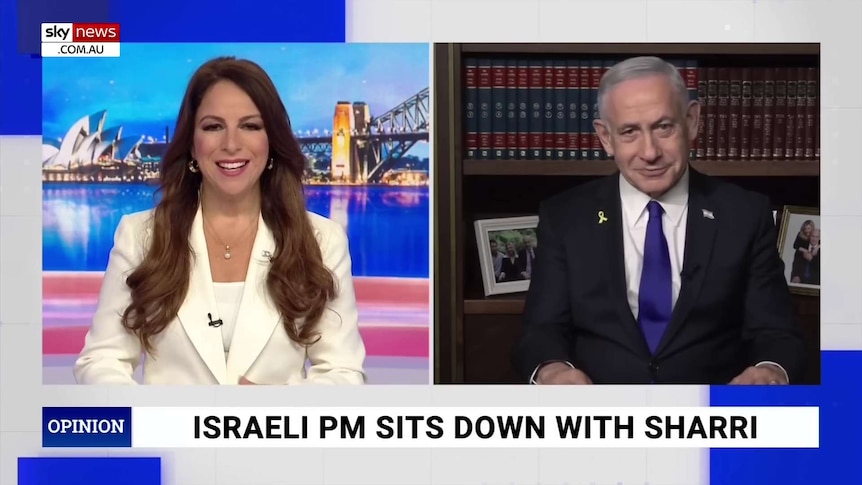
Last week, Sky News Australia broadcast a highly anticipated interview with Israeli Prime Minister Benjamin Netanyahu, conducted by Walkley Award-winning journalist Sharri Markson. The interview, which aired on August 21, 2025, has since become a focal point of global media discussions, drawing both praise and criticism for its approach and content.
The interview comes amid rising tensions between Australia and Israel following Australian Prime Minister Anthony Albanese’s decision to support the formal recognition of a Palestinian state. This move has strained diplomatic relations, with Netanyahu expressing his disapproval through a critical letter and social media posts labeling Albanese as “weak.”
The Interview’s Content and Criticisms
During the 16-minute segment, Markson questioned Netanyahu on various topics, including the perceived weakness of Albanese’s leadership, the potential for a ceasefire in Gaza, and allegations of antisemitism in Australia. However, critics argue that the interview lacked challenging questions and was more of a platform for Netanyahu to express his views without significant pushback.
Michael Gawenda, a former editor of The Age newspaper, described the interview as “the definition of a soft interview,” stating that it failed to challenge Netanyahu on crucial issues. Similarly, veteran journalist Ray Martin criticized the interview as a “sycophantic endorsement” of Netanyahu, highlighting the absence of balance and critical questioning.
Comparisons and Context
In contrast, a similar interview conducted by Fox News’ Bill Hemmer earlier in August included pointed questions about accusations against Israeli soldiers and the possibility of allowing independent reporters into Gaza. This difference in approach has fueled debate over journalistic standards and the role of media in holding powerful figures accountable.
The Sky News interview has also been criticized for not addressing concerns raised by Australia’s Jewish community, who had expressed disapproval of Netanyahu’s comments about Albanese. Kerry O’Brien, a decorated television interviewer, suggested that Markson’s interview amounted to little more than providing Netanyahu with an unchallenged platform.
Responses from Sharri Markson and Sky News
In response to the criticism, Markson defended her approach, emphasizing the importance of allowing Netanyahu to explain Israel’s efforts to avoid civilian casualties and deliver aid. She claimed to have received praise from leading editors and journalists for the interview.
A Sky News spokesperson challenged the ABC, suggesting that if it believed it could conduct a better interview, it should secure its own exclusive with Netanyahu. The spokesperson also accused the ABC of having a history of anti-Israel bias.
Implications and Future Considerations
The controversy surrounding the interview highlights the ongoing debate over journalistic ethics and the responsibilities of media outlets in covering complex international issues. While securing an interview with a figure like Netanyahu is undoubtedly a significant achievement, the manner in which such interviews are conducted can have profound implications for public understanding and discourse.
As tensions in the Middle East continue to escalate, the role of journalism in providing balanced and insightful coverage remains crucial. The Sky News interview serves as a reminder of the challenges and responsibilities faced by journalists in navigating the fine line between access and accountability.
Looking forward, media organizations and journalists must grapple with these challenges to ensure that they fulfill their role as watchdogs of democracy, providing the public with the information needed to make informed decisions about global events.






